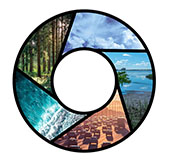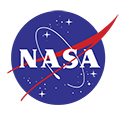New Lead Authors of the Third Decadal U.S. Carbon Cycle Science Plan Announced
The U.S. Carbon Cycle Science Program is pleased to announce the appointment of six Lead Authors for the Third Decadal U.S. Carbon Cycle Science Plan. Author nominations were requested from members of the U.S. carbon cycle science community with Lead Authors selected by the Third Decadal Lead Author Selection Committee.
The Third Decadal U.S. Carbon Cycle Science Plan will build on the two previous plans (Sarmiento and Wofsy, 1999, Michalak et al., 2011) and will identify which overarching questions highlighted in the previous plans have been adequately resolved over the past decade and those that still need to be addressed and will propose new directions for the community, especially in light of new and emerging U.S. government priorities and international assessments and agreements (e.g., UNFCCC Paris Climate Agreement). The Lead Authors and contributing authors will be responsible for identifying challenges and priorities for the next decade (~2025-2035) and developing an updated science plan through engagement with the broader carbon cycle science community.
Lead Author Bios
Dr. Leticia Barbero
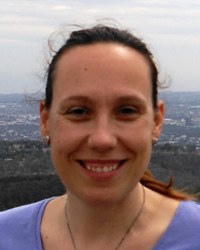
Dr. Leticia Barbero is an associate scientist at the Cooperative Institute for Marine and Atmospheric Studies (CIMAS) from the University of Miami and conducts her work at the Atlantic Oceanographic and Meteorological Laboratory (AOML) of NOAA. Her research focuses on air-sea fluxes of CO2, decadal changes in carbon storage, ocean acidification (OA) in coastal waters and the anthropogenic contribution to changes in seawater acidity (pH). She leads AOML/NOAA’s coastal acidification work under the NOAA Ocean Acidification Program, focusing on coastal regions of the Gulf of Mexico and East coast of the US.
Dr. Barbero serves as Co-Chair of the Global Ocean Ship-Based Hydrographic Investigations Program (GO-SHIP) International Science Committee and is a member of the US GO-SHIP Executive Council. She also serves on several committees and working groups including the science working groups for the Southeast Ocean and Coastal Acidification Network (SOCAN) and the Gulf of Mexico Coastal Acidification Network (GCAN), the North American GOA-ON, the NOAA Ocean Acidification Working Group (NOAWG) and the NOAA mCDR Task Force. Dr Barbero was a co-author in chapter 16 of the Second State of the Carbon Cycle Report (SOCCR2): A Sustained Assessment Report.
Dr. Abhishek Chatterjee
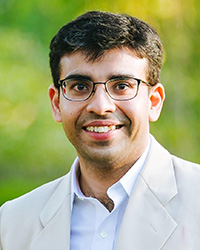
Dr. Abhishek Chatterjee (Jet Propulsion Laboratory) is an expert on carbon cycle science, Earth system models, and utilization of remote-sensing and in situ data for understanding and quantifying carbon-climate feedbacks. He is currently the Project Scientist for NASA’s OCO-3 mission and Deputy Project Scientist for the OCO-2 mission. Dr. Chatterjee’s research primarily focuses on diagnosing the variability of sources and sinks of carbon dioxide and methane, attributing the processes that govern them and predicting their response to future patterns of human society and demographics. Dr. Chatterjee has been a chapter co-lead for the 2nd State of the Carbon Cycle Report (SOCCR-2) and a co-author for the 5th National Climate Assessment (NCA5). He is also the Co-Chair of the North American Carbon Program Science Leadership Group (NACP SLG), Chair of the AGU Charles S. Falkenberg Award Committee, Co-Chair of the AMS Conference on Atmospheric Chemistry, and affiliate member of the WCRP Safe Landing Climates Lighthouse Activity on Understanding High-Risk Events and the Perturbed Carbon Cycle.
Dr. Eric T. Sundquist
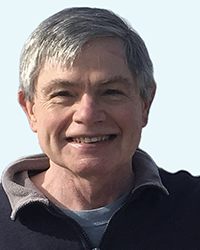
Dr. Eric T. Sundquist is a Scientist Emeritus with the U. S. Geological Survey, where he was a Research Geologist since 1978. His research seeks to evaluate and understand the processes that control and respond to changes in the level of CO2 in the atmosphere. His interests span the diverse cycling of CO2 and carbon through plants, soils, seawater, rocks, and sediments. He studies the causes and effects of past geologic changes in atmospheric CO2 levels, the ongoing effects of human actions on CO2 and climate, and the scientific and societal constraints on present-day and future carbon cycle management.
Dr. Maria Tzortziou
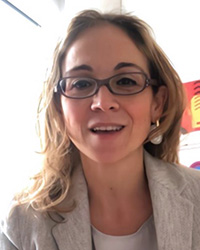
Dr. Maria Tzortziou is the Martin and Michele Cohen Endowed Professor of Environmental Sciences at the Center for Discovery and Innovation of the City College, City University of New York, and Director of Research and Applications at the CREST Remote Sensing Earth Institute. She is also Senior Research Scientist at NASA Goddard, where she serves as the Deputy Program Applications Lead for NASA’s PACE satellite mission and the Applied Science Lead for GLIMR, NASA’s first geostationary hyperspectral ocean color mission.
Dr. Tzortziou has extensive experience in ocean science, marine technology, and policy. She leads cross-disciplinary research that integrates advanced satellite remote sensing technologies with multidisciplinary datasets and models to assess human-ecosystem interactions, and the impact of multiple environmental stressors on the biogeochemistry, ecology, and biodiversity of inland and ocean ecosystems. Dr. Tzortziou serves as an expert on numerous interagency advisory and leadership boards relevant to ocean science and policy, including the Science leadership Board for the North American Carbon Program (NACP), the Science Steering Committee for the Ocean Carbon Biogeochemistry (OCB) Program, the Long Island Sound Study Program Science and Technical Advisory Committee (LISS-STAC), and the National Ocean Research Advisory Panel (ORAP) that provides independent recommendations to the Federal Government on matters of ocean policy.
